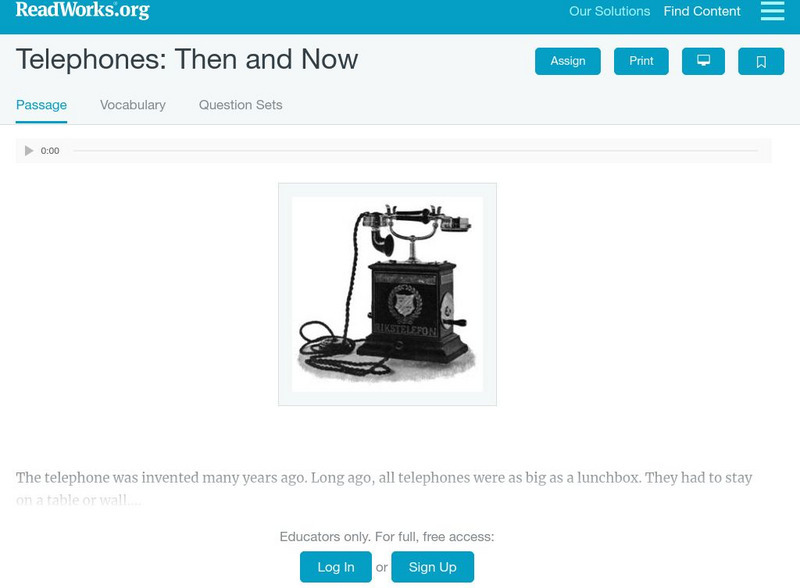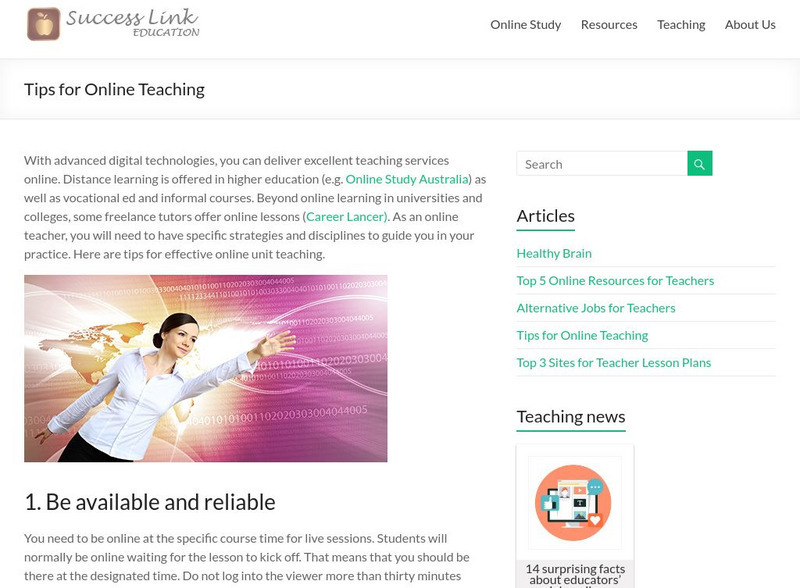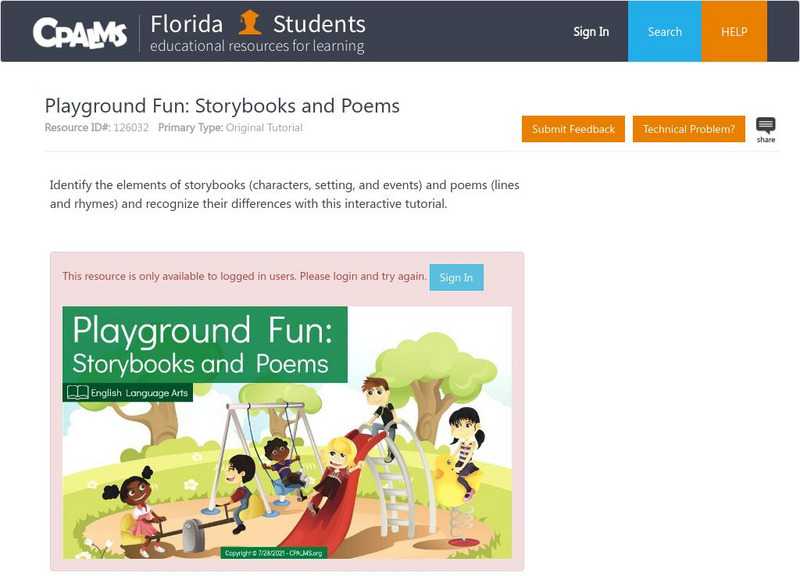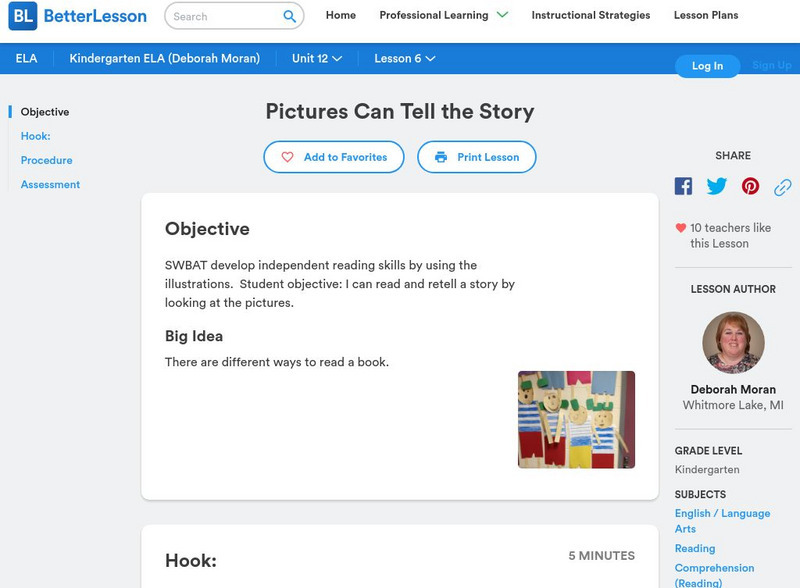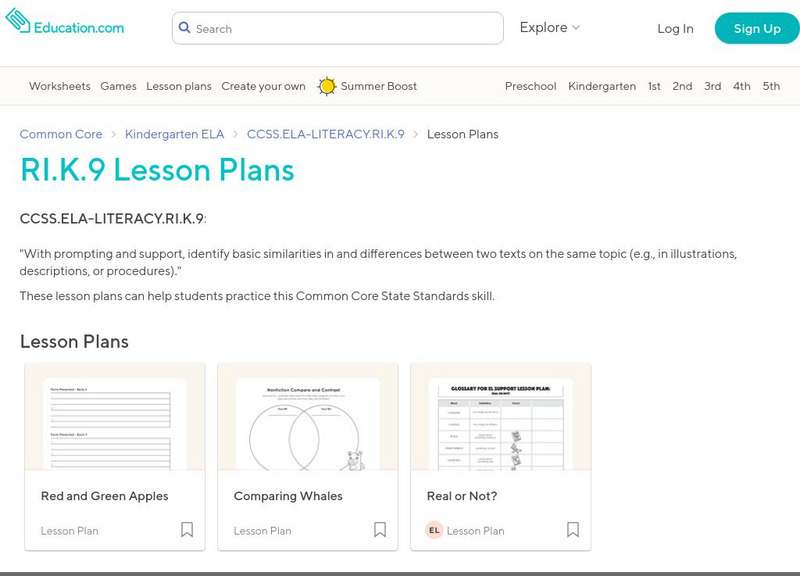Tom Richey
Slide Share: Why Do Writers Write?
A slide show with nine slides explaining the author's purpose to persuade, inform, or entertain.
Read Works
Read Works: Setting Kindergarten Unit: When (Seasons, Day, or Night)
[Free Registration/Login Required] A lesson plan, based on Look! Snow! by Kathryn O. Galbraith, in which students learn how to utilize text and picture clues to determine basic time elements of setting in a story. Students follow this...
Read Works
Read Works: Setting Kindergarten Unit: Where and When
[Free Registration/Login Required] Based on Knuffle Bunny by Mo Willems, a lesson plan in which students learn how to utilize text and picture clues to determine a when and where the story takes place.
Read Works
Read Works: Lesson 3: Comparing and Contrasting Two Characters From a Book
[Free Registration/Login Required] A three-lesson unit on comparing and contrasting through which students learn how to compare and contrast two items, themselves with a character, and two characters within a text. Lessons use the books...
Utah Education Network
Uen: 1st Grade Act. 24: Interactive Writing
In this lesson, learners will listen to nonfiction books about items that sink and float. Students will participate in filling in words to fill in a teacher-created chart that is connected to the information. Learners will then write a...
ReadWriteThink
Read Write Think: Exploring Character Through Images
This lesson plan explores Curious George in relation to images conveying character. Included in the lesson plan is an overview, practice, objectives, resources, preparation, and more.
Read Works
Read Works: Kindergarten: Character: Lesson 3: Main and Secondary Characters
[Free Registration/Login Required] Based on stories Sheila Rae, the Brave and Jamaica's Find, this lesson plan will take students through the process of distinguishing main characters from secondary ones by relying on clues from the text...
Read Works
Read Works: Grade 2: Three Lesson Unit: Genre
[Free Registration/Login Required] A series of three lesson plans designed to teach learners to compare and contrast fiction and non-fiction, identify the characteristics of non-fiction, and use guide words to locate topics in an...
Read Works
Read Works: Grade 2: Two Lesson Unit: Setting
[Free Registration/Login Required] A set of two lesson plans designed to teach students to use context clues to identify the setting and changes within it. Lessons are based on the books Bigmama's by Donald Crews and The Stories Julian...
Read Works
Read Works: Setting Kindergarten Unit: Where
[Free Registration/Login Required] Use the book Gaspard at the Seashore by Anne Gutman to teach clues students can use to determine where a story takes place. The book must be provided by the teacher, but downloadable worksheets for...
Read Works
Read Works: Compare/contrast Kindergarten Unit: Similarities/differences in Text
[Free Registration/Login Required] A instructional activity using the book Long Ago and Today by Rozanne Lanczak Williamsin in which students learn to recognize similarities and differences within a text. Ideas for teaching, guided...
Wisconsin Response to Intervention Center
Wisconsin Rt I Center: Story Writing Frames [Pdf]
Teachers will learn how to use story writing frames with their students. Teachers will learn how to implement story frames; measure progress with story frames; and find research to support using story frames. A reproducible story frame...
Reading Rockets
Reading Rockets: 25 Activities for Reading/writing Fun
Discover these exciting 25 activities that develop reading and writing skills while having fun. The activities are split for two different age groups.
Read Works
Read Works: Telephones: Then and Now
[Free Registration/Login Required] This short literary text passage is about how telephones have changed over the years. This passage is intended for guided practice and is designed to reinforce essential reading comprehension skills...
ReadWriteThink
Read Write Think: Using Curiosity for Descriptive Writing
Lesson plan which allows kindergartners to combine their experiences and curiosity into developing beginning descriptions. Students use memories and illustrations in writing.
Curated OER
Google for Education: Children and Technology: Collaborative Illustrated Story
Young scholars collaboratively create an illustrated story as a team by using Google Presentation.
Success Link
Success Link: Descriptive Writing Mittens
Use this lesson plan to teach descriptive writing. A checklist is provided so students can self-monitor their writing.
CPALMS
Florida State University Cpalms: Florida Students: Playground Fun: Storybooks and Poems
Students will learn to recognize storybooks and poems and identify their differences with this interactive tutorial.
Better Lesson
Better Lesson: rl.k.9
Written by Master Teachers, BetterLesson provides lesson plans for all core subjects. This site provides 15 lessons for RL.K.9: With prompting and support, compare and contrast the adventures and experiences of characters in familiar...
Quizlet
Quizlet: Story Elements (1St Grade) Match
This interactive game of "Match" assesses students' knowledge of story element definitions. Students will match the correct definition of a story element to its corresponding definition. Picture cues are provided on this review resource.
Starfall
Starfall: Plays, Fiction, Nonfiction
An index of links to six fiction storybooks, eight nonfiction books, and three plays. Each book has pictures and audio that will allow students to click to hear sentences or individual words as they read along. Links to three different...
Success Link
Success Link: Characters, Setting, Plot, Conclusion, and Summarizing a Story
This lesson plan offers a step-by-step procedure for teaching students how to identify story elements and to summarize a story. It explains how to use a "Who Am I" activity, as well as a linkage activity in identifying characters and...
Better Lesson
Better Lesson: Pictures Can Tell the Story
The young scholars will develop independent reading skills by using the illustrations. The teacher will read a selection of books and ask students to tell what they see in the book. Comments will lead to the conclusion that pictures tell...
Education.com
Education.com: ri.k.9 Lesson Plans
[Free Registration/Login Required] These lesson plans can help students practice identifying basic similarities in and differences between two texts on the same topic.


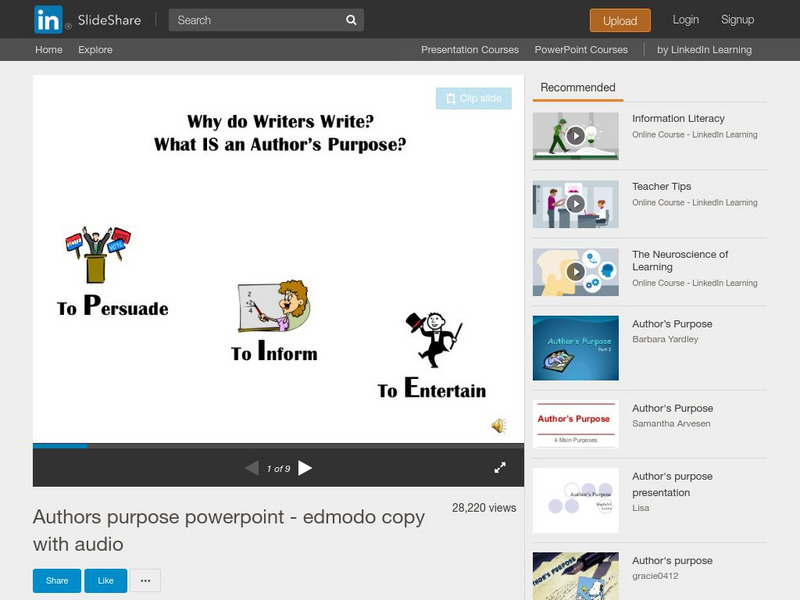





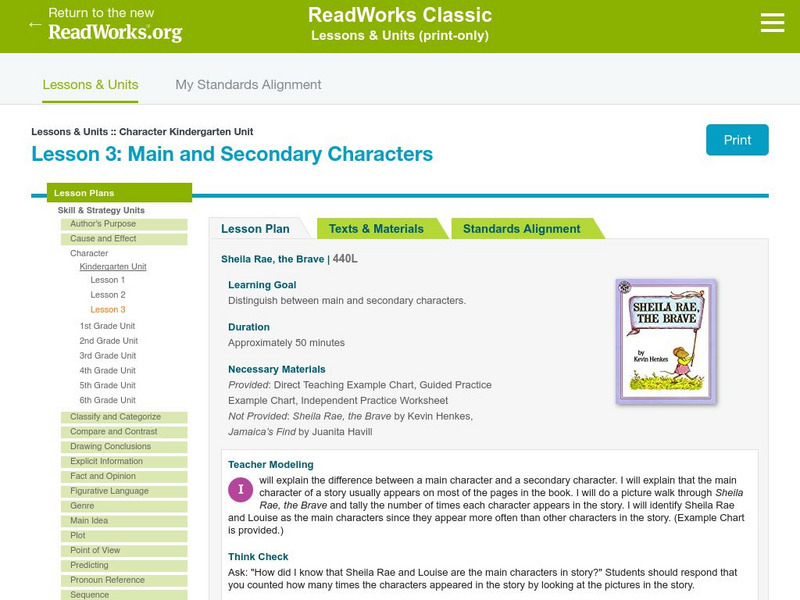


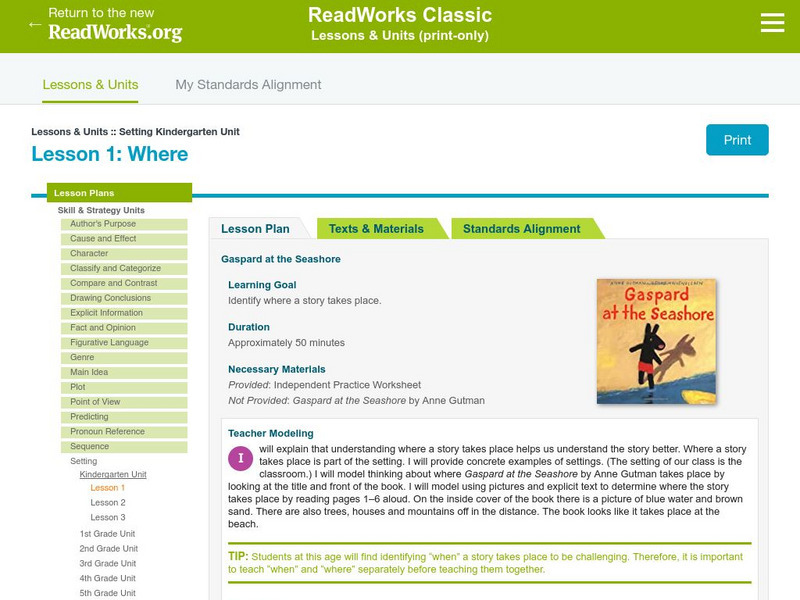

![Wisconsin Rt I Center: Story Writing Frames [Pdf] Professional Doc Wisconsin Rt I Center: Story Writing Frames [Pdf] Professional Doc](https://d15y2dacu3jp90.cloudfront.net/images/attachment_defaults/resource/large/FPO-knovation.png)

